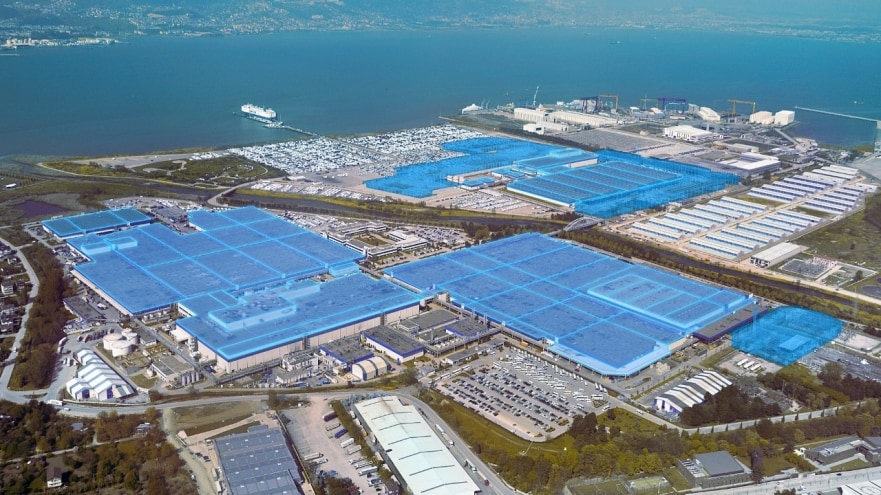- Next generation Ford Transit Custom range to include all-electric models, built by Ford Otosan in Turkey, advancing Ford’s electrification strategy and commercial vehicle leadership in Europe
- Plug-in hybrid, mild hybrid and conventional engine models also available in what will be the most extensive Transit Custom range ever offered to European customers
- Next generation Volkswagen 1-tonne commercial vehicle also to be built in Kocaeli as part of the Ford-Volkswagen Alliance; adds valuable scale to vehicle platforms and enhances the customer experience by bringing more technologies to market, faster
- Connected services co-developed with commercial vehicle customers designed to enhance the customer experience and help their businesses to thrive
- Follows Ford Otosan’s December €2 billion investment forecast in its Kocaeli facilities to increase vehicle and battery pack production and to create more jobs
COLOGNE, Germany, Mar. 16, 2021 – Ford today confirmed that the next generation Ford Transit Custom range will include an all-electric model in addition to plug-in hybrid, mild hybrid and conventional engine variants.
The new Custom range – which includes the Transit Custom van and Tourneo Custom people mover – goes into production in the first half of 2023, with all-electric versions of both modelspart of the most extensive Transit Custom range ever offered to European customers.
All versions of the next generation Transit Custom will be built by Ford Otosan – Ford’s joint venture in Turkey – in Kocaeli, the home of the Ford Transit range.
In addition, the next generation Volkswagen 1-tonne commercial vehicle also will be built in Kocaeli, adding valuable scale to vehicle platforms and enhancing the customer experience by bringing more technologies to market, faster.
“The next generation Transit Custom range – including the all-electric versions – will strengthen Ford’s position as Europe’s No.1 commercial vehicle brand,” said Stuart Rowley, president, Ford of Europe. “Transit Custom is the jewel in our commercial vehicle crown and key in our drive to grow our commercial vehicle business as we continue to create a sustainable, profitable Ford business in Europe rooted in an electrified future.”
Ford said in February that its entire commercial vehicle range will be zero-emissions capable, all-electric or plug-in hybrid, by 2024, with two-thirds of Ford’s commercial vehicle sales expected to be all-electric or plug-in hybrid by 2030.
In the interim period, however, Ford understands that not all commercial vehicle operators will make the move from the conventional internal combustion engine to all-electric vehicles in a single jump. This is why its range of powertrain technologies from mild hybrids through to plug-in hybrids are essential now, with the power of choice continuing to be a significant part of the next generation Transit Custom range.
Continued growth in Ford’s strong commercial vehicle business is key to its European profitability. It is supported by new products and services, working with an extensive network of commercial vehicle converter partners, with Ford’s strategic alliance with Volkswagen and its Ford Otosan joint venture providing cost-effective vehicle development and sourcing.
“Today, we are starting another strategic investment that will help shape the future of the automotive industry. Our Kocaeli plants will be transformed into Turkey’s first and only integrated production center for the assembly of electric vehicles and batteries. We consider this investment, which will span over a decade, as a forward-looking strategic move. I would like to thank Ford Motor Company for their trust in Turkey and Ford Otosan which made this significant investment possible,” said Ali Koç, chairman, Ford Otosan, and vice chairman, Koç Holding Board of Directors.
In 2020, Ford achieved its sixth successive year as the leader in commercial vehicle sales in Europe. The trend has continued into 2021, with Ford maintaining its position as the continent’s best-selling commercial vehicle brand.
Driving further growth in Ford’s commercial vehicle business is an ecosystem built around connected services co-developed with customers and designed to enhance the customer experience and help their businesses to thrive. These include, connected uptime and productivity services such as FordPass Pro for fleets of up to five vehicles, and Ford Fleet Management, created by Ford and ALD Automotive last year to maximize productivity for fleet customers seeking bespoke services to keep their vehicles on the road.
Today’s announcement also is positive news for other Ford manufacturing facilities in Europe and for the European and Turkish supplier industries providing components for the next generation Transit Custom Range. Ford manufacturing facilities will supply advanced technology diesel engines from Dagenham, UK, and transmissions from Cologne, while more than 100 Turkish-based suppliers will provide components.
“Commercial vehicle growth and leveraging partnerships such as our joint venture with Ford Otosan are key enablers to Ford of Europe’s future success. We are committed to reaching our 6 percent EBIT margin goal as part of Ford’s plan to turnaround our global automotive operations,” said Rowley.
Ford Otosan – home of the Ford Transit Custom
The relationship between Koç Holding and Ford dates back to 1928, and today Ford Otosan is the leading company in the Turkish auto industry and one of the longest running and most successful joint ventures in the global auto industry.
Ford Otosan’s Kocaeli facilities opened in 2001, and since 2004 has been Ford’s global lead plant for the production of successive generations of the Ford Transit Custom range and the Transit 2-tonne. The Ford Courier range is manufactured at Ford Otosan’s Yenikoy Assembly Plant also located in Kocaeli. In total, around 85 percent of the sales of the complete Transit family of commercial vehicles are from vehicles manufactured by Ford Otosan in Turkey.
Ford Otosan stated last December that it plans to invest more than €2 billion to increase vehicle and battery pack assembly capacity production at Kocaeli, and that it expects to increase employment by around 3,000 people.
# # #

